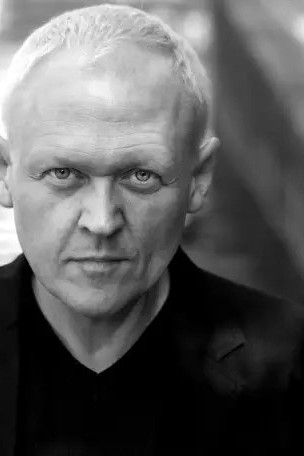Italy is the guest of honor at the Frankfurt Book Fair this fall. “Rooted in the future” is the motto with which the official delegation will arrive under the leadership of Mauro Mazza, appointed by the post-fascist Meloni government. “La cultura è dialogueo senza pregiudizi” (“Culture is dialogue without prejudice”) postulates the former TV journalist, who has already been heard publicly polemicizing against Roma and homosexuals. The trade fair could be interesting when it comes to the question of the extent to which Meloni’s strict right-wing nationalist course in cultural policy is already visible to the outside world. One person who is following all this closely is Elisabetta Cavani, who is hosting the “ILFest” in Munich for the sixth year now. The festival of Italian literature, which is unique in Germany, will take place from April 26th to 28th this year, again in the Neuhauser Trafo.
The award-winning writer Domenico Starnone is traveling to the opening of “Il Fest”.
(Photo: Leonardo Cendamo/Imago/Leemage)
Cavani, who comes from Bologna and ran her bookstore “Ital-Libri” in Munich for 25 years, is also always looking for a big idea for her festival, which can then be found in the books of her guests. This year she was inspired by Domenico Starnone, who writes in his current volume of essays “L’ umanità è un tirocinio” (Enaudi, 2023): “One becomes human, becoming human is an ongoing process of uncertain outcome, and it doesn’t contribute to that “The literature contributes to a small extent.” The word umanità, says Cavani, has two meanings in Italian: humanity and incarnation, which is what Starnone’s book and now also the festival is about. And about the role that literature plays in this process.
The author, who has won many renowned literary prizes and is an astute diagnostician of not only Italian conditions, is traveling to the opening on Friday, April 26th (7 p.m.). A fun fact on the side: Domenico Starnone himself, but especially his wife, the translator Anita Raja, were said to be the real authors behind the pseudonym “Elena Ferrante”. The now 81-year-old formerly worked as a journalist for the left-wing newspaper Il Manifesto wrote and comes from Naples, certainly finds this very amusing. You can ask him about it at the opening evening.
Elisabetta Cavani also invited representatives of the younger Italian literary scene. One of these new voices, for example, is Jana Karšaiová. Born in Bratislava in 1978, she now lives in Italy. With her debut novel “Divorzio di velluto” she was among the twelve finalists for the most important Italian literary prize, Premio Strega, in 2022. “Velvet Divorce” is now also available in German (Nonsolo Verlag). Karšaiová’s protagonist Katarína is in a phase of upheaval, her marriage is falling apart, as is the country in which she lives, communist Czechoslovakia (reading: Saturday, April 27th, 3 p.m.).
For Elisabetta Cavani, Nicolò Moscatelli, born in 1985, is a true language artist. His adventure novel “I calcagnanti” is a reminder of “how important storytelling and books are so that we learn to resist the arrogance of power” (April 28, 2 p.m.) . Maddalena Vaglio Tanet also belongs to the same generation; her novel “Tornare dal bosco” will be published in German by Suhrkamp in the fall. The book begins like a crime thriller: A teacher learns that one of her students has committed suicide on the way to school. She then disappears into the forest. A little boy, an outsider like her, discovers her secret (April 28, 3:30 p.m.).

Harald Gilbers’ crime novels are set in Berlin in the 1940s; at the festival he will be talking to his Italian colleague Carlo Lucarelli, who is having his inspector investigate in Bologna. The books of both authors have been translated into the other language.
(Photo: Ronald Hansch)
The crime writers Carlo Lucarelli and Harald Gilbers are professionals when it comes to suspense. They will talk about why they let their stubborn, resistant detectives investigate in Bologna and Berlin, respectively, in the 1940s (April 27, 7 p.m.). The conclusion on Sunday (5 p.m.) will also be about the connection from yesterday to today. A panel will look at three great Italian women writers of the 20th century and ask the question: Why have the books by Alba e Cespedes, Sibilla Aleramo and Elsa Morante been published again in Italy and re-translated in Germany in recent years, and what significance they have them for today’s generation of female writers?
Almost all readings and discussions at the festival will be translated simultaneously, and as always, translators from Munich will provide insight into their work at a workshop (April 28, 11 a.m.). You would have to be a child again, because it will never be easier to learn a new language again. At the festival there are also reading hours in Italian for children on Saturday mornings (Neuhausen City Library).
ILFest Munich, from Friday, April 26th to Sunday, April 28th, Neuhauser Trafo/City Library, Nymphenburger Straße 171a, information about readings and tickets at www.ilfest.de

